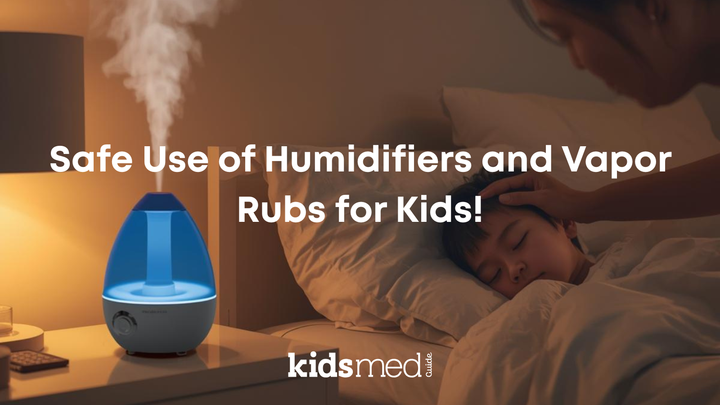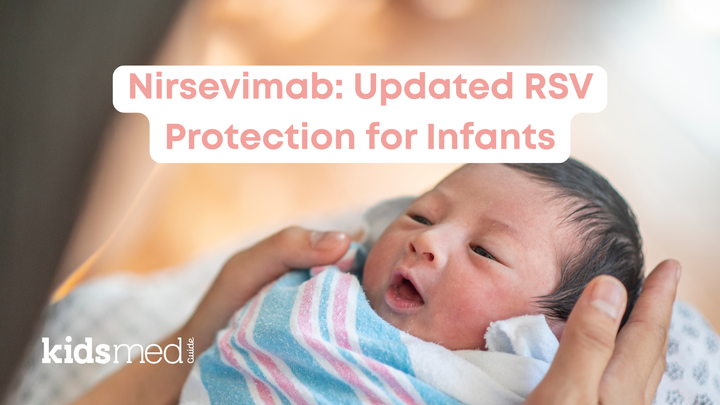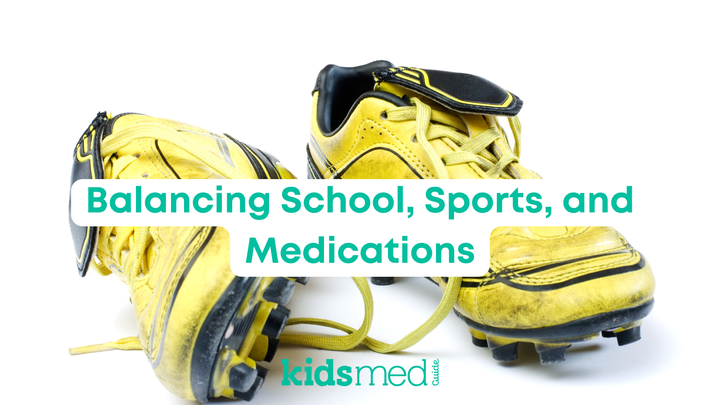Can You Give Ibuprofen and Acetaminophen Together for Kids? A Pharmacist's Guide
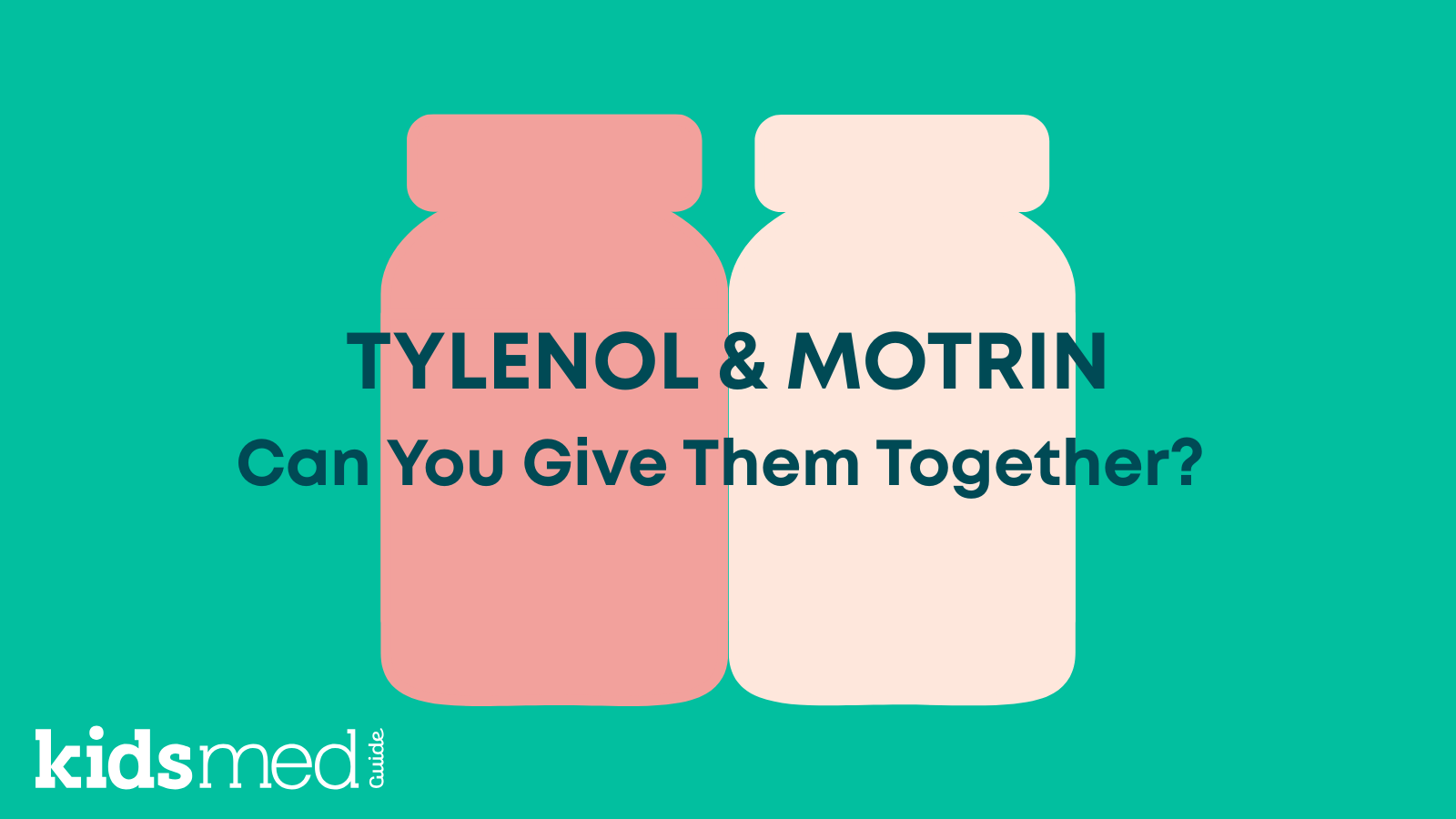
Remember the infamous 2023 “tripledemic” of RSV, flu, and COVID? I sure do. My 15-month-old got walloped by RSV and then tested positive for COVID during our second urgent care visit in two days. Along with breathing issues, he had a stubborn fever that refused to break.
That’s when our pediatrician and I turned to a strategy many parents wonder about: using ibuprofen and acetaminophen together. If you’ve ever been up at 2 a.m. with a feverish toddler, you’ve probably Googled: “Can I give Tylenol and Motrin at the same time?” This guide will explain the facts, the risks, and some practical tips for using ibuprofen and/or acetaminophen.
What Is a Fever?
A fever is a body temperature greater than 100.4°F (38°C). In children, fever is most often caused by infection, but it can also follow vaccinations, overheating, or other medical conditions.
- Fever in healthy kids: In children over 3 months old, fever isn’t always a reason to panic if your child is otherwise acting well and staying hydrated.
- Fever in young babies: In babies under 3 months, fever is always urgent—call your doctor right away.
- When to see the doctor: Seek medical care if your child has a fever and is immunocompromised, has a chronic condition like cancer, has a central line or port, develops a new rash, shows severe lethargy or dehydration, if you have a concern about a bacterial infection like strep throat or a urinary tract infection, or if fever persists without a clear cause.
In most healthy children, we treat fever not because the number is dangerous, but because it’s making them uncomfortable—too restless to sleep, too sore to drink fluids, or just downright miserable.
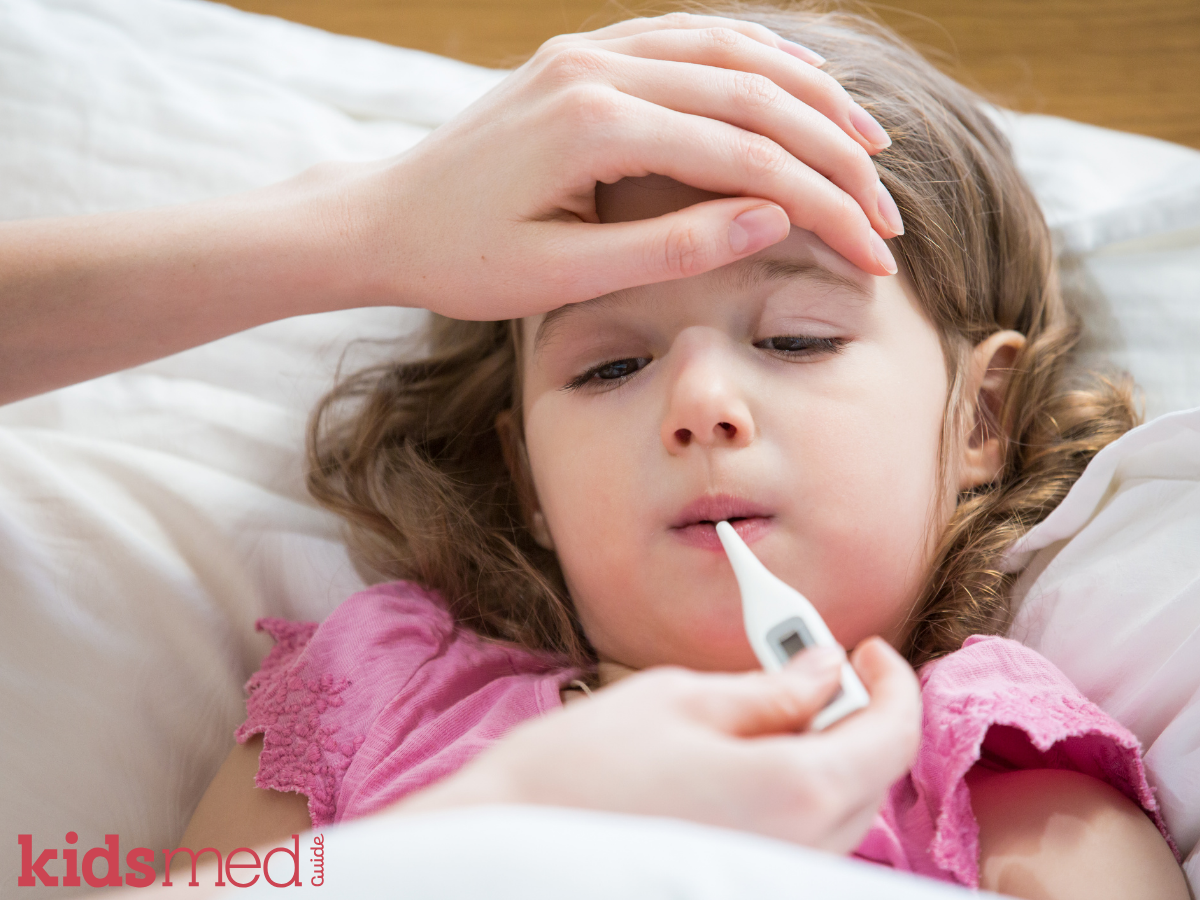
Ibuprofen vs. Acetaminophen for Kids
Acetaminophen (Tylenol®) and ibuprofen (Motrin®, Advil®) are the two most common over-the-counter medications for fever and pain in kids. Both reduce fever and ease mild to moderate pain, from ear infections to flu aches.
- Acetaminophen: Approved in babies as young as 3 months (and younger, but only under a doctor's guidance). Can be given on an empty stomach. Also available in suppositories, which are helpful if your child is vomiting or refusing oral medication.
- Ibuprofen: Approved for children 6 months and older. Lasts a little longer than acetaminophen. Especially helpful for pain associated with inflammation, such as sprains or sore throats. Best taken with food.
Both medicines are safe and effective when dosed correctly, and most of the time they can be used interchangeably. Many parents keep both on hand, safely stored, because illness never waits for a convenient time—especially not on holidays or vacations!
Can You Give Ibuprofen and Acetaminophen Together?
Yes—in some cases, ibuprofen and acetaminophen can be used together in children. Because they are metabolized differently in the body, alternating or combining them is generally considered safe when used properly.
This approach can be helpful when:
- A fever is stubborn and not responding to one medicine alone.
- Your child is in significant discomfort (aches, ear pain, injury) and you want to maximize relief.
- You need to strategically time doses around meals or bedtime (ibuprofen lasts longer, while acetaminophen is easier on an empty stomach).
Important caveat: The American Academy of Pediatrics (AAP) does not endorse alternating or dual therapy as routine practice. Some studies suggest combined therapy lowers fever more effectively than acetaminophen alone, but the benefit compared to ibuprofen alone is less clear.
The AAP warns against using dual or alternating therapy and recommends sticking with just one medication. The main risk is parental confusion and accidental overdose of one or both drugs.
Some pediatricians may support the AAP stance, but others may be comfortable with alternating acetaminophen and ibuprofen to relieve symptoms. Alternating and dual therapy are used in real-life practice in certain cases. As always, we recommend asking your pediatrician for their advice specific to your child!
How to Alternate Tylenol and Motrin for Kids
If your pediatrician recommends alternating medicines, here’s how to do it safely:
- Acetaminophen dosing: Every 4–6 hours as needed (no more than 5 doses in 24 hours).
- Ibuprofen dosing: Every 6–8 hours as needed (no more than 4 doses in 24 hours).
As you can see, you can stagger or alternate doses to attain optimal comfort or pain/fever relief. A sample schedule might look like this:
- 7 AM: Acetaminophen
- 10 AM: Ibuprofen
- 1 PM: Acetaminophen
- 5 PM: Ibuprofen
Pro tips for parents:
- Write it down!! In the fog of sleep deprivation, it’s easy to forget what you gave. Keep a chart of each dose administered and the time it was given, or set phone reminders. This cuts down on the risk of accidentally overdosing.
- Treat the child, not the clock. If your child is comfortable, you don’t have to wake them to give medicine (unless specifically instructed by your doctor).
- Plan around meals and bedtime. Since ibuprofen is best with food and lasts longer, it can be helpful in the evening to stretch through the night and help your child get the rest they need.
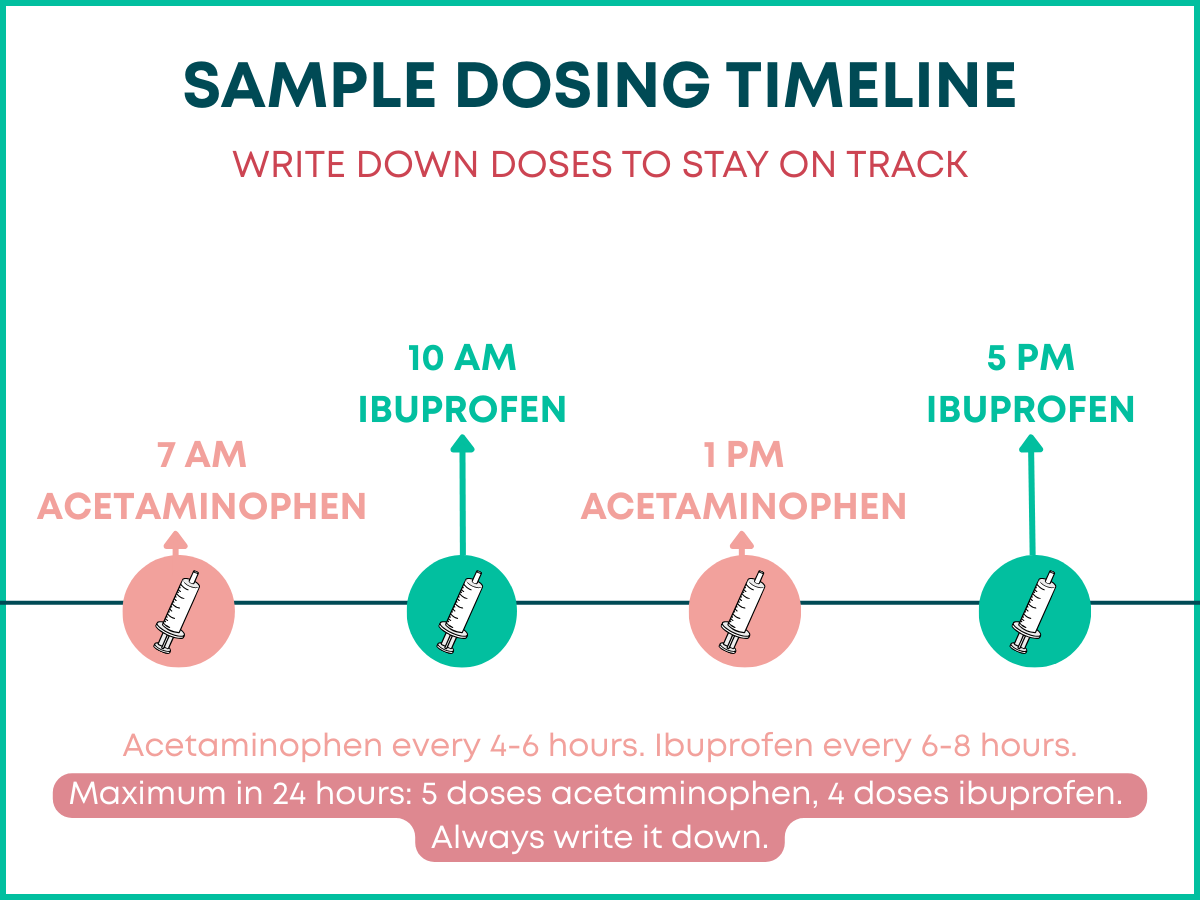
Using Ibuprofen and Acetaminophen for Pain Relief in Kids
These medicines aren’t just for fever; they’re also used to relieve pain in children.
- Everyday aches and pains: Headaches, sore throats, muscle aches from the flu.
- Minor injuries: Bumps, bruises, and sprains—ibuprofen may have an edge here because of its anti-inflammatory action.
- Post-vaccine soreness or teething: Both can provide comfort when your child is fussy or uncomfortable.
- Short-term moderate pain: After dental work or while waiting for medical care for an injury.
Just like with fever, alternating medicines may be considered for short periods if one isn’t enough. For persistent or severe pain—especially after a head injury or major accident—see your child’s healthcare provider right away.
Risks of Using Ibuprofen and Acetaminophen Together
While both medicines are generally safe, keep in mind that using the two medications together is not an AAP-recommended practice and that there are risks when using them together:
- Accidental overdose: The biggest concern is mixing up doses or giving medicines too close together. Write every dose down!
- Underlying health conditions: Children with liver, kidney, or heart problems require special guidance before taking these medications. In some children, we are concerned about the effects of drug metabolism in the body or interactions with other necessary medications.
- Combination cold medicines: Many “multi-symptom” products already contain acetaminophen or ibuprofen. Doubling up could lead to dangerous overdoses. We recommend against using cough and cold products in children.
- Evidence limitations: While some research shows benefit, others suggest alternating therapy is no better than ibuprofen alone.
Always talk with your pediatrician if your child needs fever or pain medicine for more than a few days or if you’re unsure about dosing.
When to See the Doctor
Seek medical care right away if your child:
- Is younger than 3 months old or has significant health conditions with any fever.
- Has trouble breathing, persistent vomiting, or dehydration (no urine for 8+ hours, parched mouth, sunken eyes).
- Appears extremely drowsy, irritable, or unresponsive.
- Develops a stiff neck, seizures, or a new rash.
- Has a fever lasting more than 3 days without a clear cause.
- Has pain that is severe, persistent, or not improving with over-the-counter medicine.
Trust your gut—if your child looks unwell or you feel uneasy, call your doctor!
Final Thoughts from a Pharmacist Mom
Just like most parents, I've endured many long nights checking thermometers and worrying about illness! I've definitely used acetaminophen, ibuprofen, or both when my children are very uncomfortable and unwell from a fever or very achy from the flu.
Ibuprofen and acetaminophen can be used together safely in many circumstances. Still, I recommend checking in with your trusted pediatrician and using them for alternating or dual therapy only if you are careful about timing, dosing, and documentation.
Whether your child is battling a stubborn fever or in pain from teething, ear infections, or an injury, these medicines are reliable tools when used correctly. Keep both on hand, write down each dose, and focus on your child’s comfort more than the number on the thermometer. When in doubt, call your pediatrician.
The following references were used to compile this information:
American Academy of Pediatrics. (n.d.). Acetaminophen for fever and pain. HealthyChildren.org. https://www.healthychildren.org/English/safety-prevention/at-home/medication-safety/Pages/Acetaminophen-for-Fever-and-Pain.aspx
American Academy of Pediatrics. (n.d.). Fever and your baby. HealthyChildren.org. https://www.healthychildren.org/English/health-issues/conditions/fever/Pages/Fever-and-Your-Baby.aspx
American Academy of Pediatrics. (n.d.). Fever without fear. HealthyChildren.org. https://www.healthychildren.org/English/health-issues/conditions/fever/Pages/Fever-Without-Fear.aspx
American Academy of Pediatrics. (n.d.). Ibuprofen for fever and pain. HealthyChildren.org. https://www.healthychildren.org/English/safety-prevention/at-home/medication-safety/Pages/Ibuprofen-for-Fever-and-Pain.aspx
De la Cruz-Mena, J. E., Veroniki, A. A., Acosta-Reyes, J., Estupiñán-Bohorquez, A., Ibarra, J. A., Pana, M. C., Sierra, J. M., & Florez, I. D. (2024). Short-term Dual Therapy or Mono Therapy With Acetaminophen and Ibuprofen for Fever: A Network Meta-Analysis. Pediatrics, 154(4), e2023065390. https://doi.org/10.1542/peds.2023-065390
KidsHealth. (n.d.). Fever. The Nemours Foundation. https://kidshealth.org/en/parents/fever.html

